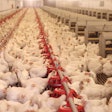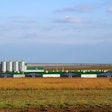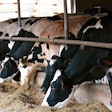As a commercial nutritionist, a consultant, and now a piglet feed producer, I have always considered medicated feed a doubtful practice. Not only do piglets not consume enough feed, especially when they are sick, for medications to work properly, but also, dosage is more often than not excessive or inadequate as actual piglet feed intake varies from batch to batch even within the same farm! I shall not mention the many problems associated with the manufacturing of registered medicated feed; it suffices to say that some of the largest outfits in Europe have stopped completely the production of medicated piglet feeds.
So, what is the answer to non-medicated feed?
First, commercial piglet feeds should be fortified with ingredients having strong antimicrobial properties, but products that are not registered as medications. These can be ingredients like copper sulfate, zinc oxide (but not in the EU anymore), organic acids, and essential oils – to name the most commonly used products. This practice will provide a good level of protection and a boost in growth performance when feed intake is sufficient, but alone is not enough when piglets are prone to get sick.
Thus, as a second measure, a medication program should be provided through the drinking water. Here the attending veterinarian will have full control of the medications used, their dosage, and the duration of the treatment program. Sick piglets drink plenty of water, and this makes water the ideal avenue for medication. Plus, the veterinarian will have flexibility in quickly changing the treatment protocol without having to wait for the next order of feed to be delivered.
So, why do we still use medicated feeds?












